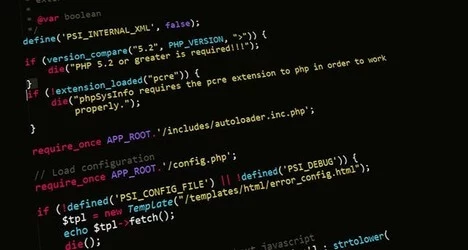HR Tech and the Evolving Workforce
Add bookmarkHR is evolving, and so is the workforce. And it’s created a real struggle for HR. The reason is HR technology. That may sound negative especially if an HR professional or team is trying to figure out how to respond to the changes, but it’s really about strategy; making sure HR professionals or their teams are evolving at the same speed as the workforce.
Sadly, that is rarely the case. One or the other is almost always ahead… and it’s usually the workforce. Why? Consumerization. Technology has allowed people to personalize their lives, and as a result, it is bleeding in to their professional lives. From schedules to development, from work location to communication, technology continues to drive a wedge between long held HR ideas and evolution of the future.
HR Tech
The global market for HR technology is massive. In an article, the Times of India reported the industry is valued at $400 billion. In the past two years alone, $2 billion has been poured into the market in the form of venture capital and private equity investment. Those numbers are expected to rise in 2019.
Despite that, HR analytics guru Josh Bersin says 45% of companies are still focused on underlying infrastructure instead of more innovative HR technologies.
Want the latest trends on HR Technology? Download the HR Tech Global Report 2019 here!
So, how can HR get ahead of the game? The answer is to take a cue from older Millennials and Generation Z.
One of the hallmarks of these individuals is their access to information through technology. It is not uncommon for these workers to simply Google search the answer to a question or turn to YouTube for a quick how-to video. HR, whether it’s realized or not, has the same access. It requires an evolution of mindset on the part of the HR professional.
After some quick research, what would an HR professional learn about the evolving workforce?
More and more people are moving toward a flexible work life. What does that mean? The normal 8a – 5p work schedule is non-existent. Workers work from home… or the café, or the park; anywhere with internet access. For those that come into the office, there is a growing desire the workspace is flexible in design. Technology allows workers to be mobile and working in the same spot for eight hours each day seems redundant and boring. Translation: there is a lack of challenge to the employee.
Other statistics include:
- According to the World Economic Forum, 65% of children now entering primary school will hold jobs that currently don’t exist.
- Besides being more efficient, tomorrow’s workforce will be even more diverse than today’s when one considers gender, ethnicity, culture, religion, sexual preference and identification. That’s according to Deloitte.
- HR.com says 78% of survey respondents say smart technologies will most significantly change the workforce by 2020.
Knowing all of this information, what changes can HR make to meet the challenges of the evolving workforce? Oddly enough, the answer is HR technology.
- Change the hiring practice
One of the more time consuming tasks undertaken by HR is finding and recruiting new staff. Even more so, a lot of companies are still leaning on traditional screening methods and those yield very little information about a candidate to go on before making the hire. If it turns out to be a bad hire, the HR professional is back to square one. Personal biases can also hinder the process.
Look to machine learning and artificial intelligence to help overcome these issues. AI can screen candidates based on temperament and skill set to find candidates that have both the right skills and traits needed to fit the organization.
- Automating repetitive tasks
When automation first made its way to the HR scene, there was a real concern people would lose their jobs in favor of a robot. For the most part, that’s not been the case. In fact, it’s created more jobs and freedom for the employee.
Automating processes saves time and money and it frees up employees from doing mundane tasks everyday. As a result, this allows the employee to focus on projects that matter to them. And that’s important to consider when looking at the workforce and the changes it’s going through. Consider this: a Fast Company survey found more than 50% of millennials say they would take a pay cut to find work that matches their values. Generation Z is no different in that most are socially conscious and do not want to work for a company that is not aligned with their ideals.
- Constant learning
While most Millennials and Generation Z grew up with technology, only 36% or Millennials and 29% of Gen Z believe they have the skills and knowledge needed to thrive in the workplace. According to Deloitte, while most were interested in continuing the development of technical skills, more wanted to focus on building interpersonal skills, developing more confidence, and engaging in ethical behavior. All of those are consider, by the way, as essential to business by these groups. Near constant learning is going to be critical to every company as a result.
- Increasing employee productivity
As employees, we hate to learn a skill only for it to go unused. While there has been a huge emphasis on Millennials and Generation Z, it is understood that sentiment is universal across all members of the workforce.
Modern HR tools help managers analyze, predict, and track the progress of employees. This information can be used to help improve productivity. It can even be used to increase job satisfaction.
In summation
HR is still recovering from the mindset that technology will strip employees of jobs. It’s only recently that mindset has begun to change. And why? HR professionals have started realizing technology can take on frustrating, repetitive, boring or dangerous tasks. As a result, employees are free to interact, design, and innovate. And that’s really where the workforce is evolving. Technology is just a vehicle by which to arrive at that particular destination.
Image courtesy: Stock Photo Secrets

















